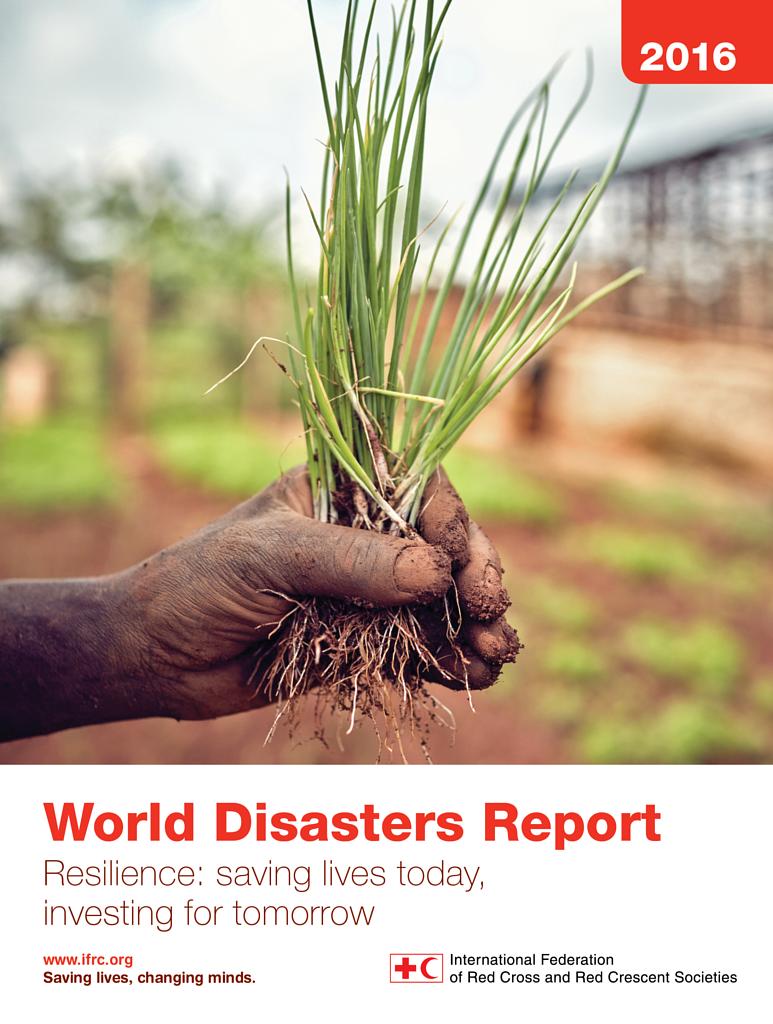 New report calls for a major shift in international aid financing
New report calls for a major shift in international aid financing
CLICK HERE - REPORT - World Disasters Report 2016 - Resilience: Saving Lives Today, Investing for Tomorrow
ifrc.org - October 13, 2016
A lack of global investment in strengthening community resilience is leaving tens of millions of people exposed to predictable, preventable and catastrophic disaster risks, stresses the World Disasters Report 2016, launched today by the International Federation of Red Cross and Red Crescent Societies (IFRC).
According to the report, despite broad recognition that investing in resilience before a disaster can save lives and money, only 40 cents in every 100 US dollars spent on international aid is invested in preparedness and measures to reduce disaster risk.
“Investing in resilience is the best method we have for protecting the lives, livelihoods and dignity of the world’s most vulnerable people,” said IFRC Secretary General, Elhadj As Sy. “Business as usual is no longer acceptable. It will only lead to more silent suffering and deeper poverty.
Recent Comments